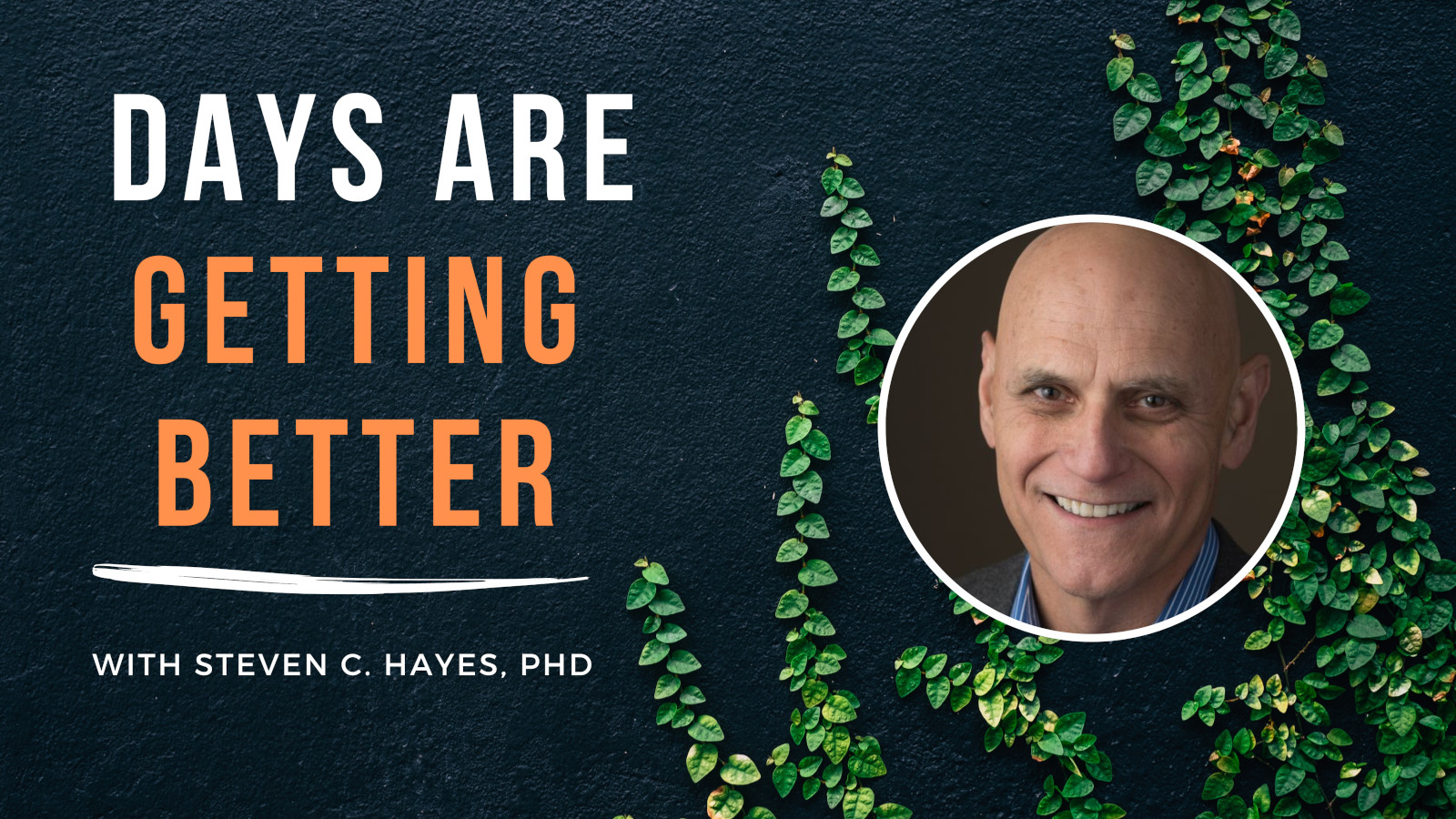A woman moves to a new city. She doesn’t know anyone yet, but one afternoon, she wanders into a thrift store, running her fingers over an old leather jacket, a vintage watch, and a well-worn novel. Something about these objects—their history, their past owners—feels oddly comforting. And according to researchers Feifei Huang and Ayelet Fishbach, this feeling isn’t a coincidence. Across seven studies, they found that people who feel lonely are commonly drawn to secondhand goods, possibly seeking invisible connections to others. Apparently, even when we’re merely thrift-shopping, we might actually be driven by deeper motives and hidden wants.
Our human needs and yearnings shape our thoughts, feelings, and actions in often unexpected ways. And although we’re rarely aware of their influence, they pull on our psychological strings, influence our choices, affect our emotional well-being, and ultimately determine our quality of life. We all have those needs—the question is about how we try to meet them. To our own detriment, we often attempt to fulfill these yearnings in unhelpful, misguided ways, leading to self-destructive cycles that cause us pain and misery.
Although researchers argue about which are most important, I believe that the most foundational ones underlie the things we do to change our own unique human lives (Hayes, 2019). With that as the filter, there are six to keep track of. With awareness and proper practice, we can redirect these yearnings, and fulfill them in ways that broaden and enrich our life. But to really do so, we first need to understand what they are, how we commonly try to satisfy them, and then explore alternative, more helpful routes. So without further ado, here is the first one.
Yearning for Belonging | Letting Go of the False Self
In an effort to be seen and accepted, we often create a persona—a social mask designed to win approval and avoid rejection. Instead of embracing our true selves, we mold our identities to fit other people’s expectations, curating an image that feels safer than authenticity. This pursuit, while seemingly positive, can become a trap. Because when our worth depends on validation, we hide our flaws, exaggerate our strengths, and suppress our insecurities, leading to stress, anxiety, and self-deception.
Over time, this rigid self-image isolates rather than connects us, as the gap between who we are and who we pretend to be grows wider. Society and cultural narratives fuel this cycle, reinforcing the illusion that we will be worthy of love and belonging only when we fix all of our flaws. True belonging, however, does not come from a perfect performance but from embracing our whole selves including our vulnerabilities—allowing us to connect with others without the burden of a mask.
Yearning for Orientation | Paying attention to What’s Present
If you were dropped into an unfamiliar city, your first instinct would be to look for landmarks, street signs—anything to help you make sense of where you are. The mind does something similar when faced with uncertainty: it rummages through the past for clues and projects into the future for reassurance, searching for patterns, for control. But this constant mental scanning often backfires. Instead of grounding us in the present, it traps us in endless loops of worry and regret, making us feel even more lost.
Mindfulness offers a different kind of orientation—one that doesn’t rely on solving the past or predicting the future but on fully inhabiting the present. Jon Kabat-Zinn, one of the pioneers of mindfulness in the West, describes it as “paying attention on purpose, in the present moment, and non-judgmentally.” Rather than fixating on where we should be, we learn to engage with where we are, acting with intention in the moment.
Yearning to Feel | Opening up to Emotions Without Resistance
We actively seek out emotions in every form—through movies that make us cry, music that stirs nostalgia, and stories that transport us into love, terror, or joy. Even as infants, we are wired to explore, to touch, to experience the world around us with every sense available. And yet, as we grow, we develop a contradictory instinct: to avoid feelings that are too intense, too painful, too unpredictable. Our minds convince us that if we can just filter out the discomfort and cling to the positive ones, we will be left with only the pleasurable parts of life. But in doing so, we don’t just avoid pain or exhaust ourselves by clinging—we numb ourselves to our full human experience. Emotions are echoes of the past triggered by the present. They are pathways to wisdom – if we will let them be.
The real challenge is not in chasing happiness but in embracing all emotions without resistance and learning the lessons they have to teach us. Avoidance tricks us into believing that discomfort is a problem to be solved, rather than an inevitable part of a rich and meaningful life. But those who learn to feel deeply rather than only seeking to feel good, find that life opens up in unexpected ways. The world moves from grayscale to color. When we stop fighting our emotions and start living alongside them, we reclaim the ability to fully experience our own lives.
Yearning for Coherence | Embracing Complexity in a Messy World
We seek patterns and strive to shape our thoughts into neat, logical narratives—even when life itself is messy and contradictory. And in our pursuit of clarity, we often mistake normal contradictions—like loving someone yet finding them frustrating—as problems to fix. We cling to rigid narratives because they feel certain, even when they distort reality. True coherence, however, isn’t about forcing order but about embracing complexity and humbly learning what works best.
Paradoxically, that kind of clarity comes when we stop demanding it. Like listening to two quarreling children, we don’t have to pick a side; we can simply observe. We can learn to step back from our thinking, and recognize thoughts as experiences rather than absolute truths. And in doing so, we often find that the mental noise softens and we can take what is useful and leave the rest. Our minds become freer, more flexible, and surprisingly more at peace—not because we have imposed order, but because we have learned to live without it.
Yearning for Meaning | Breaking Free from External Validation
In a world that relentlessly pulls us toward external validation, the yearning for meaning is often misdirected. We measure success by socially constructed benchmarks—wealth, status, admiration—rather than by an internal sense of fulfillment. The problem is that these external pursuits, no matter how diligently we chase them, never seem to satisfy. They provide short-term gratification but leave behind a nagging void. Meaning cannot be borrowed from without; it must be cultivated from within.
Yet, we fear stepping off the well-trodden path. We hesitate to make bold choices because we worry about failure or rejection. We internalize the belief that our worth is tied to socially prescribed roles—whether that’s being a high-powered executive, a devoted parent, or a relentlessly happy individual. And when we deviate, we risk being seen as aimless or misguided. But true fulfillment comes not from adhering to a checklist of “shoulds” but from aligning our actions with our deepest values. And for that purpose, we must each find our own way.
Yearning for Competence | Learning to Love the Process
From the moment we can grasp an object, we are driven to experiment, to explore, to figure things out. Watch a child trying to stack blocks or tie a shoelace—it’s not about rewards or praise; it’s about the sheer joy of mastering something new. But while the desire to be competent is inborn, the way we pursue it is often flawed. We can become so fixated on achievement—on proving we are good rather than simply getting better—that we lose sight of the very thing that made learning exciting in the first place.
The problem is that our minds don’t like slow, incremental progress. We want the reward NOW! We want to be skilled and knowledgeable without being ignorant and awkward first. And when reality doesn’t cooperate, we get discouraged, frustrated, even ashamed. This is why so many people give up on learning new skills—why the gym membership goes unused, why the guitar gathers dust in the corner. We tell ourselves we lack talent, when in reality, we are simply unwilling to endure the awkward, unglamorous phase of getting better. The secret to real competence isn’t about innate ability; it’s about embracing the process, being willing to struggle, and finding satisfaction in the effort itself. Those who do—who learn to love the messy, imperfect journey—are the ones who truly master their craft.
Redirecting Our Yearnings Toward a Richer Life
Beneath our everyday choices, these six yearnings quietly shape our lives. They can lead us into frustration, loneliness, and self-doubt, trapping us in cycles of avoidance and external validation. Or, when understood and intentionally redirected, they can guide us toward connection, clarity, and growth. The key is not to suppress these needs but to fulfill them in ways that expand, rather than diminish, our lives. When we stop seeking belonging through pretense and instead embrace authenticity, when we trade control for presence, and when we welcome emotions rather than resist them, we begin to live more fully. Similarly, we don’t have to be bound by rigid narratives, but can embrace life’s contradictions with openness. Our search for meaning can shift from chasing approval to creating something deeply our own. And our desire for competence can transform from a fixation on success to a love for the process of growth itself.
We will always yearn. That’s the nature of being human. But when we understand the hidden forces that drive us, we can stop being controlled by them—and instead, use them to shape a life that is truly ours.
References:
- Hayes, S. C. (2019). A liberated mind: How to pivot toward what matters. New York: Penguin/Avery.
- Huang, F., & Fishbach, A. (2021). Feeling lonely increases interest in previously owned products. Journal of Marketing Research, 58(5), 002224372110306. DOI: 10.1177/00222437211030685







